The 'Lost Boys' of Palawan: A new way of life when fishing is no longer enough
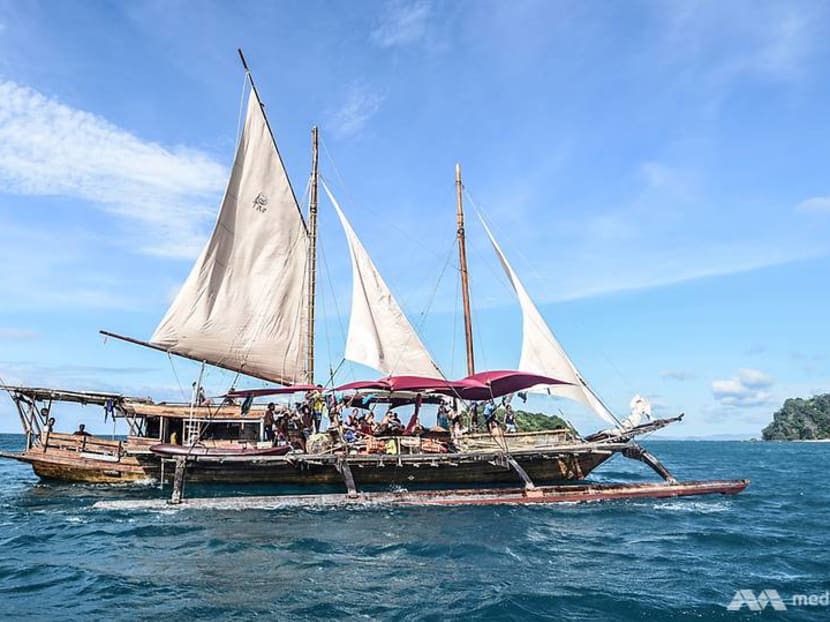
Aboard a wooden sailboat, the Lost Boys of Tao Philippines lead an expedition in Palawan on the remote western border of the Philippines. (Photo: Pichayada Promchertchoo)
EL NIDO, Philippines: The Lost Boys of Palawan know exactly where they are heading. Doracotan Island is visible on the blue horizon. They can spot its tall palm trees, white powdery beach and a row of bamboo huts, which grow larger and larger as the Bangka boat glides through the ocean waves.
Aboard the Bangka, a local name for the native wooden boat with two outriggers, 20 or so explorers are soaking themselves in the last day of an expedition cruise. They are travellers from various parts of the world who want to get lost in the raw and secluded nature of Palawan islands, while keeping a good distance from mainstream tourism.
Leading the expedition is a small Filipino with a big smile named Aneil Raniel. He oversees both the travellers and the crew. They are the Lost Boys of Tao Philippines – a social enterprise that empowers Palawan communities through sustainable tourism.
Aneil himself is one of the Lost Boys. These are young Filipino islanders, both male and female, recruited by Tao for apprenticeships and stable jobs in community-based tourism. They bring travellers on rustic sea journeys to the most remote islands in Palawan for off-the-beaten-track experiences through untouched nature, local people and culture.
Like Aneil, many Lost Boys come from families of fisherfolk – a traditional but struggling occupation in the present-day Philippines.
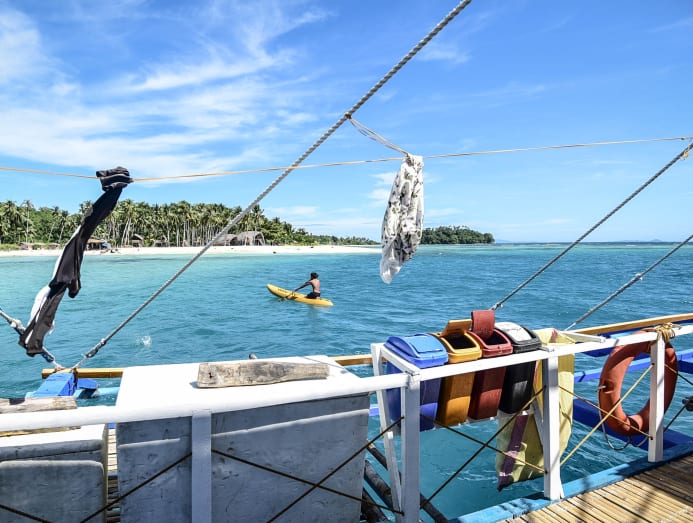
“Before, you could do fishing just in front of your house and you could get 1,000 kg. But now, you need to go out in the middle of the sea for 3-7 days, or a month. They're really hard to find,” said Aneil, 34, an ex-fisherman from Coron in northern Palawan.
Dwindling fish catches have made life in the island province difficult. Although Palawan is one of the Philippines’ richest fishing grounds, small-scale fishermen find it hard to compete with big commercial fishing companies and their advanced tools.
Data from the Philippines Statistics Authority shows a steady decline in fisheries production from 4.69 million metric tonnes in 2014 to 4.35 million metric tonnes in 2018. Last year, municipal fisheries also recorded a drop in the third quarter from the same period in the previous year, the government reported.
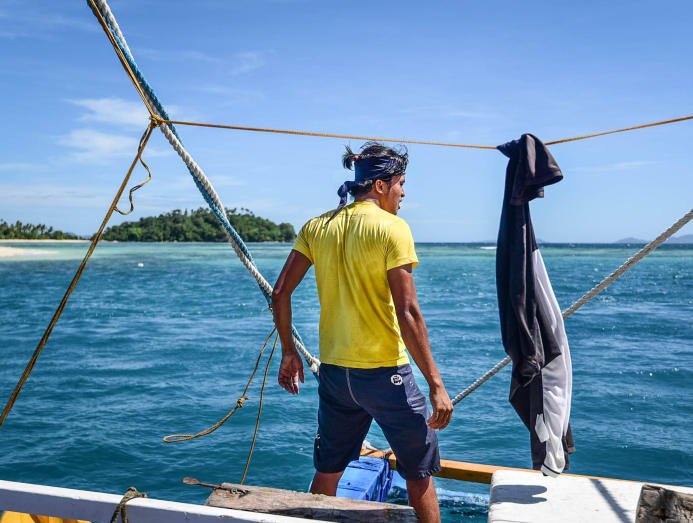
Besides overfishing, reduced fish yields are also linked to higher sea surface temperature and changes in ocean circulation, according to the 2017 Philippine Climate Change Assessment.
The situation has forced many fishermen to find new jobs. But options are restricted in the remote western province of Palawan, at least for islanders with no degrees or skills outside everyday island life. Here, poverty is also widespread and children grow up with limited opportunities. Many youths are stuck in their villages with nowhere to go or jobs to do.
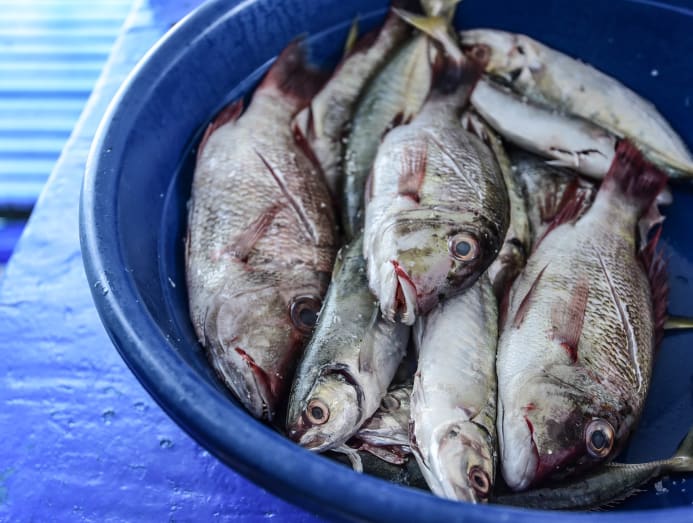
Before joining Tao, Aneil felt lost. He did not finish school and struggled to earn money for his family. “I was walking in the dark. I didn’t know what to do,” he said.
For Filipinos, if you grow up on an island, you’re stuck there.
Then someone he knew asked him to join the social enterprise. The business had just started off then and it was looking for locals to help run the expeditions. Aneil has been with them for 14 years, he says. He still remembers the first day and how difficult it was to “learn everything”, from climbing coconut trees to gardening, working in the kitchen, speaking English and bringing tourists to snorkelling spots.
“You need to learn everything – down and slowly, step by step, up,” he said.
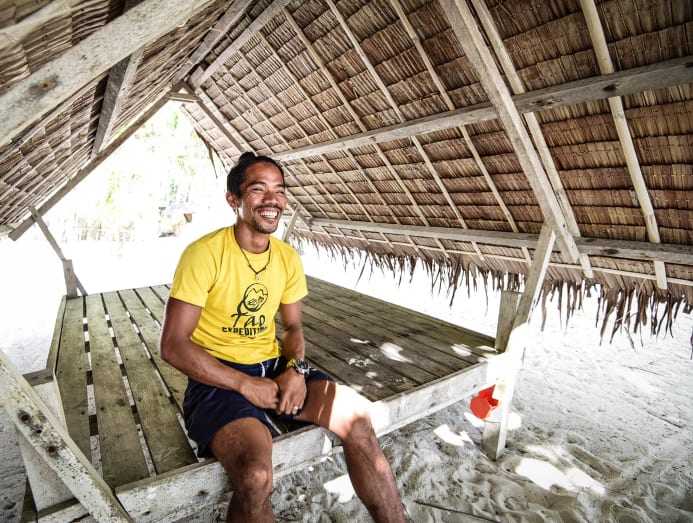
‘NO MORE FISH TO CATCH’
As the Bangka reaches its destination, the explorers scattered around the island before lunch. Some of them are snorkelling near an old shipwreck that once lay on the beach. Others simply enjoy the natural world around them as the salty sea breeze ruffles their hair.
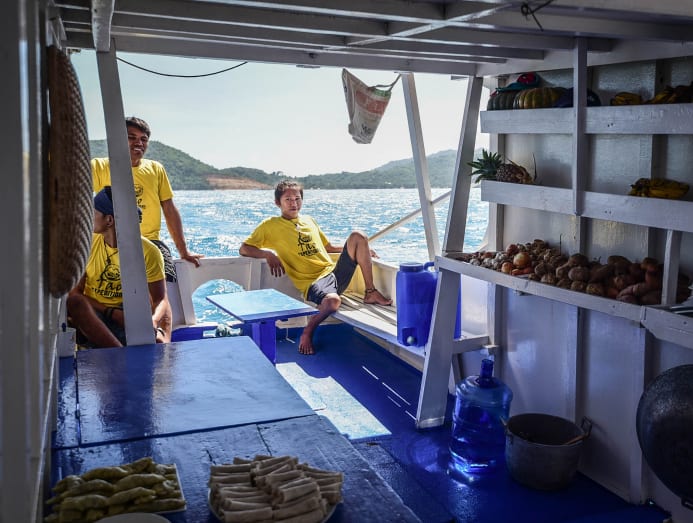
In a big bamboo hut, the Lost Boys are hard at work. Fried freshly caught fish, vegetarian spring rolls and greens sautéed with coconut milk will soon be served to their guests. Cooking is a must-have skill for the crew, Aneil says.
“And it’s not just cooking that we do. After cooking, you have to bring all your food and explain what kind of food we have for lunch. You have to use English in front of the people,” he added. “That’s a really good idea to train people. You need to learn other experiences for yourself as well.”
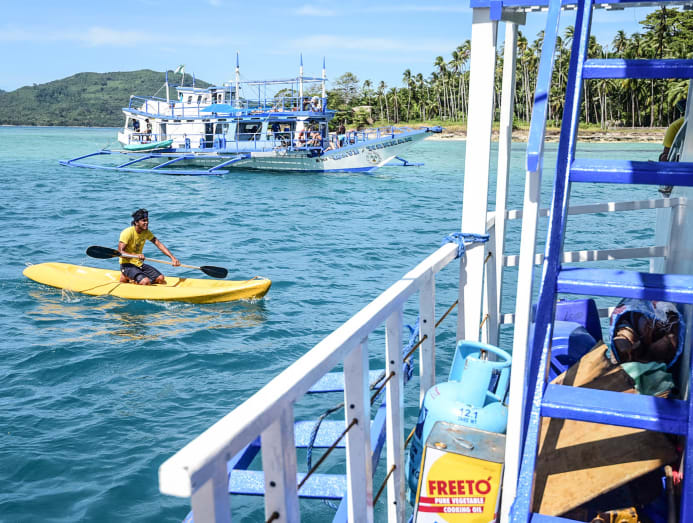
Community development forms the backbone of Tao Philippines. Its 300 staff are working to support their local families and natural environment, while tapping on the booming tourism industry.
The main basecamp in El Nido serves as a training ground for village youths. Here they learn how to adapt their versatile island-life skills for tourism purposes, as dwindling fish stocks force families to seek a more stable source of livelihood.
Delbert Batindaan remembers when the sea was abundant. He could easily catch 50 kg of fish in a day. Now, it is very difficult to even get 10 kg. He says there is nothing left to catch near the Palawan shore anymore.
“We stopped fishing because we realised it was no good,” said Delbert. The 47-year-old left fisheries several years ago and now works as a captain for a tourist boat.
“The weather is also unpredictable and can be turbulent. You might catch a typhoon while you’re in the middle of the sea. Things are different because of climate change,” he added.
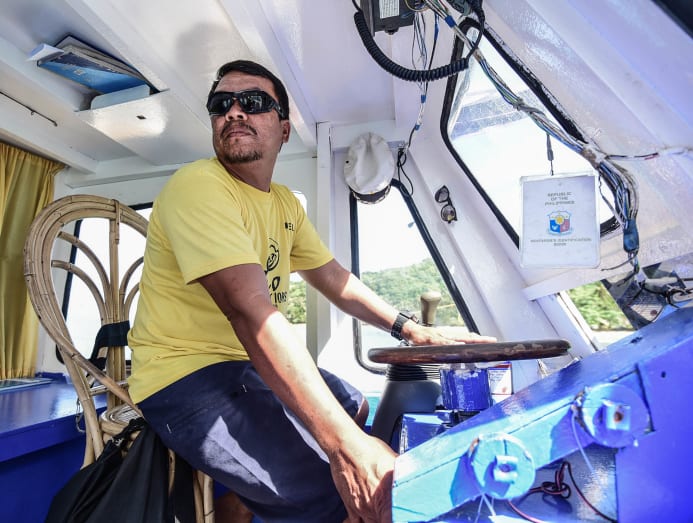
Climate change poses a great challenge to the Philippines. With its extensive coastlines, the island nation is among the most vulnerable countries in the world to climate change hazards.
According to the Philippine Atmospheric, Geophysical and Astronomical Services Administration (PAGASA) – a national institution specialised in weather and flood conditions – continued temperature increases, rapid sea level rise and tropical cyclones could put further stress to fishing opportunities.
“Migration of fish to cooler and deeper waters would force the fisher folks to travel further from the coasts in order to increase their catch,” PAGASA said.
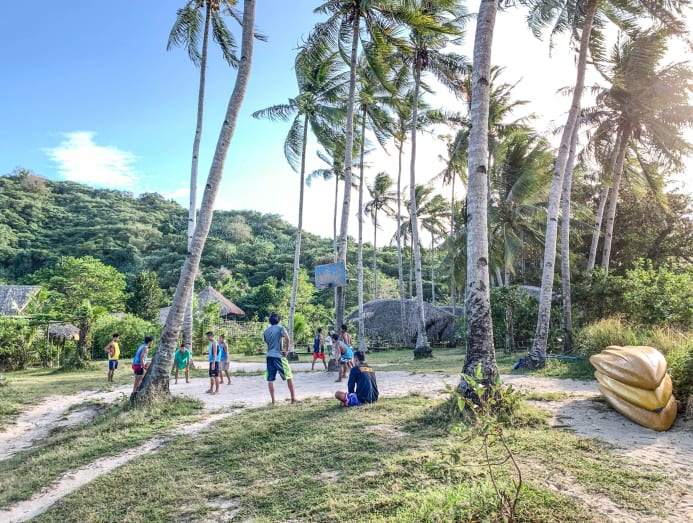
Many islanders in Palawan know fishing as their only livelihood. But this traditional means of living may not be enough to help them survive the uncertain future.
“A lot of people have joined tourism because they realised there’ll be no more fish to catch someday. So, they see the tourism industry as a viable source of income,” Delbert said.
A rise in tourism has offered more opportunities in Palawan. Last year, its governor Jose C Alvarez promised economic development in the province. Parts of the plan include tourism infrastructure that he said could bring in 5 million tourists and 250 billion pesos (US$4.9 billion) to the local economy and generate jobs.
For the Lost Boys, the growing industry has changed their lives and broadened their world. Their jobs provide them with stable income and an opportunity to unlock their potential. All they need is to step out of their shell and work hard for the life they want to live.
“You need to explore. Learn everything,” Aneil said. “I feel the world is bigger. I’m really proud of myself.”





